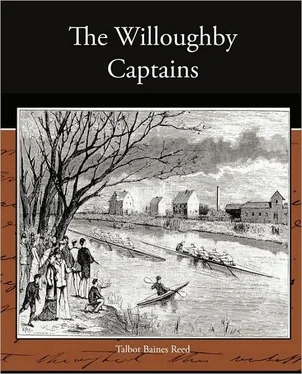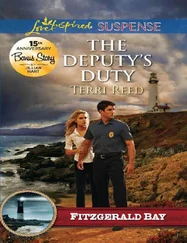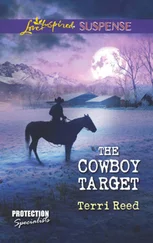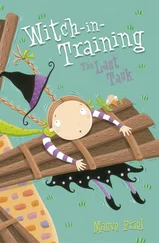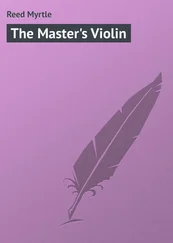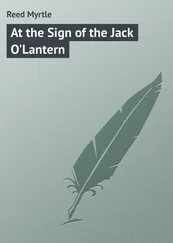“Hurrah! you’re inside,” they cry.
“Mind you put them into the bank,” is the derisive echo of the enemy.
“Now, Fairbairn; now, you fellows,” cries Wyndham’s voice.
“Now, boss Riddell — mind your eye. Pull your left when you want to go right,” shout the facetious Welchers.
Riddell had long got past the stage of being flurried by shouts from the bank. He feels nervous undoubtedly, but he does not look it, as he quietly tries his rudder-lines and settles himself on his seat.
Fairbairn is as cool as ever. To look at him he might be just starting for a quiet saunter up-stream. And the crew behind him are equally composed, as they lie on their oars waiting for the start.
But the Parrett’s crew, as they come smartly up and take their outside berth, receive an ovation far beyond that of their rivals. They are undoubtedly the popular crew, as well as the favourites.
Every man in the boat has done something for Willoughby in times past, and as the boys see their heroes ready now for a fresh triumph, they forget all about their little tyrannies indoors, and cheer them like mad.
“Bravo Parrett’s. Bravo, Bloomfield! Hurrah, captain! You’re to win.”
Even the Welchers for the moment join in the popular clamour.
“Go it, you cripples!” cries Cusack, encouragingly; “no milksop captains. Two to one on Bloomfield!”
All this time the boats are lying in position. Mr Parrett on the little steam-launch behind surveys them critically, and satisfies himself that all is square. Then he advances to the prow of his boat and shouts the usual question.
The next moment he gives the word, and the two boats dart forward like arrows from a bow, and the race has begun.
Gilks and Silk up above Willow Corner heard the shout which greeted the start, and turned anxiously towards the direction from which it came.
“They’re off now!” said Silk, trying to appear more unconcerned than he really was.
“Yes; no mistake about it!” said Gilks, whose anxiety was certainly not less than that of his friend.
“How long before we see them?”
“Three minutes; they ought to get into the School Reach by then.”
Neither spoke for a minute. Then Silk said, “What a row the fellows are making!”
“Yes,” said Gilks; “there’s a bigger crowd than I ever saw down this year.”
Another silence. And then presently in the far distance, at the end of the School Reach, they could see first the smoke of Mr Parrett’s launch, then a black moving crowd on the bank, and finally two white specks on the water.
“There they are!” said Gilks.
“Can you tell which is which?” asked Silk.
“No, not yet.”
An anxious minute followed. The doctor and his party on the point opposite left their tent and came down to the water’s edge; spectators who had been getting tired of waiting now freshened up and made final and desperate attempts to improve their position, while those who meant to fall in with the runners buttoned their jackets and turned up their trouser ends.
“Schoolhouse inside!” exclaimed Gilks, suddenly, as the sun momentarily caught the blue oars of the inside boat.
This was all that could be ascertained for the moment. From where they sat the blue and the red flags seemed to be coming towards them exactly abreast.
The crowd advanced with a roar, above which it was impossible to hear the name of the leading crew. But presently, as the two boats approached the corner, a slight turn inwards enabled them to answer the question for themselves.
“We lead!” exclaimed Silk.
Silk was a Welcher and Gilks a schoolhouse boy, but “we” meant Parrett’s.
Yes, the red flag was ahead, though only a little.
“How long before they’re at the point?”
“Half a minute. I say, how splendidly the schoolhouse are steering, though!”
Silk laughed. “More than Parrett’s are! Young Parson’s taking them round rather sharp, isn’t he?”
“No; he always turns in like that; it’s better than the long sweep. Now look out!”
During this brief dialogue the two boats had come on towards the corner. As far as Gilks and Silk could see at present Parrett’s led by about half a length, which advantage, however, it stood to lose owing to its outside position at the corner. Parson, however, knew what he was about even better than Riddell, who had kept a magnificent course down the reach, but who now seemed afraid to take full advantage of the sharp corner. The Parrett’s coxswain, on the other hand, with his half-length to the good, began turning his boat’s head early, even at the risk of running dangerously close on his rival’s water, and so saved as much as possible of the lost ground.
It was an anxious moment, for as the boats came round that corner so the race usually depended. The crowd on the banks well knew the crisis, and shouted out their warnings and encouragements to the rival coxswains with redoubled eagerness.
“Now then, Riddell! round you go! Pull your right!”
“Steered indeed, Parrett’s! Bravo, Parson!”
The corner was half-turned, the boats lay nearly level, each coxswain pulling hard with his right line, when suddenly there was a shock in the Parrett’s boat, followed by a loud shout from Parson, and next moment the boat was shooting helplessly straight towards the bank, from which it was only saved by a prompt order to “Backwater all!” from Bloomfield.
What could it be? The shouts on the bank died away into sudden stillness, and fellows forgot even to keep up with the schoolhouse boat, which, followed by the steam-launch, rowed steadily on towards the winning-post.
What was it? The answer soon became known, when Parson, standing in his boat, waved the broken end of a rudder-line above his head. At the critical point of the race this had failed, and in consequence all the efforts of the rowers were useless, and — and the schoolhouse boat was Head of the River!
The rage, excitement, and disappointment at such an unlooked-for termination to the great struggle was beyond description, as the reader may imagine. A general rush was made for the unlucky boat, and shouts and recriminations and taunts and condolences bore witness to the mixed feelings of the spectators.
Some demanded a fresh race there and then, some suggested foul play, others urged the boat to row on and make the best race they could of it, others boldly claimed the victory for Parrett’s, since they led at the moment of the accident.
Amidst all this tumult the unlucky boat slowly backed into mid-stream, and turned towards home, Parson steering no longer by rudder but by word of mouth. As it did so, a distant report announced that the schoolhouse boat had reached the winning-post; whereat the Parrett partisans set up a loud defiant shout, which they maintained during the entire homeward progress of their ill-starred boat.
Among the few who remained on the scene of the accident were Gilks and Silk, both pale and agitated.
The latter, as has been said, was painfully interested in the result of the race. To him the defeat of Parrett’s meant more than the mere disappointment of a hope or the humiliation by a rival. It meant the loss of a good deal more money than he possessed, and the miscarriage of a good deal which he had expected with absolute confidence to win. No wonder then that his face was white and his voice trembling as he rounded on his friend.
“You fool!” exclaimed he, with an oath.
It was rather hard surely on Gilks, who may have encouraged his friend to rely on the victory of the Parrett’s boat, but who certainly was as much astounded and mortified by the accident as he was.
“There must be another race,” said he, hurriedly. “They can’t take this as decisive, I tell you. They must have another.”
Читать дальше
